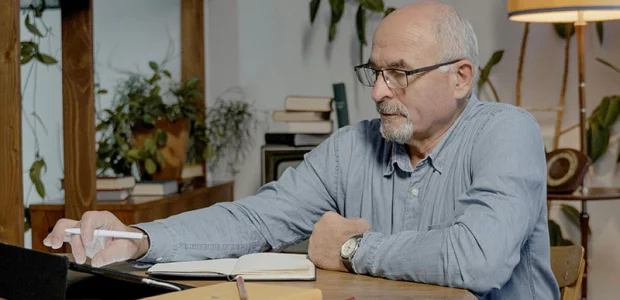
In part two of our interview series with Cornell MBA alumnus Solomon Tesfaye, we discuss his main takeaways from the MBA, how it shaped his career, and what advice he would give to potential MBA candidates. Nowadays, Solomon leads business development and capital markets at tZERO Group, the global leader in blockchain technology for capital markets. How did the MBA help him get there?
Solomon will be speaking as part of our free webinar on October 5 along with Eddie Asbie, Executive Director of Admissions and Scholarship at Cornell Johnson School of Management. Make sure to register in order to get valuable insight into the Cornell MBA program.
And if you missed it, don’t forget to read part one of our interview, where Solomon tells us all about his experience of studying for the Cornell Johnson School of Management.
What are the most prized lessons from the MBA that you use in your professional life now?
The Cornell Johnson School of Management process enhanced my personal and professional self-awareness. Through the MBA program, I gained the ability to develop structured self-development techniques to promote constant growth and accountability. I identified areas of development that could be addressed and highlighted natural strengths that could be further enhanced. This equipped me to take a more thoughtful approach in pursuing opportunities throughout my career that aligned with my core professional differentiators.
Looking back, do you believe the MBA was the right decision?
Absolutely. I have no doubt that pursuing an MBA was the right decision. It would have been a much longer process to make the significant career transition and gain the comprehensive business technical foundation I was seeking without it. The MBA provided a structure that introduced a much higher degree of certainty regarding the outcome. Also, I would have not had the luxury of a cohort of peers supporting me through the transition and joining me as colleagues in the professional environment. I described some of these dynamics in the previous blog post.
What have you found valuable about being a member of Cornell’s global community?
Cornell Johnson School of Management has managed to position the university as a world-class institution while creating an intimate environment that fosters meaningful relationships between classmates and faculty. I believe this has contributed to a high level of engagement among current students and alumni. Over the years, I have continued to be amazed at the extent of the global connectivity and accessibility of this community as they make a conscious effort to support one another far past time on campus. Additionally, I have been pleasantly surprised to find that this sense of Cornell community translates across programs within the university.
What are your career goals? Where do you see yourself professionally in 10 years' time?
I intend on continuing to support the growth of innovative companies through senior strategy and operations roles. In 10 years, I will seek to have a higher ratio of advisory roles and/or investor positions working with great entrepreneurs while still maintaining a direct hands-on leadership role within an organization. Additionally, I will always be an advocate for diversity, equity, and inclusion initiatives within and outside of these companies.
What advice would you give to anyone looking to accelerate their career with an MBA?
As I stated in the previous blog, choosing an MBA is not a quick transactional decision. I would encourage anyone to speak with students, alumni, and faculty; contrast programs' curriculum structure; and visit campuses. You should assess whether the specific MBA program environment and community are conducive to your personal needs and professional objectives. It is a multi-variable decision, so I would encourage you not to oversimplify it. The variables taken into consideration are unique to you. Are you looking to gain international experience? Is the program strong from a technical perspective? What is the community like? Does your target employer recruit from that university? Would you be proud to be associated with this community for a lifetime? These are examples of some of the factors that I took into consideration.
Sign up for the free webinar: VALUE OF A CORNELL MBA: AN ALUMNI PERSPECTIVE, October 5, 10am ET (GMT -4)


Comments